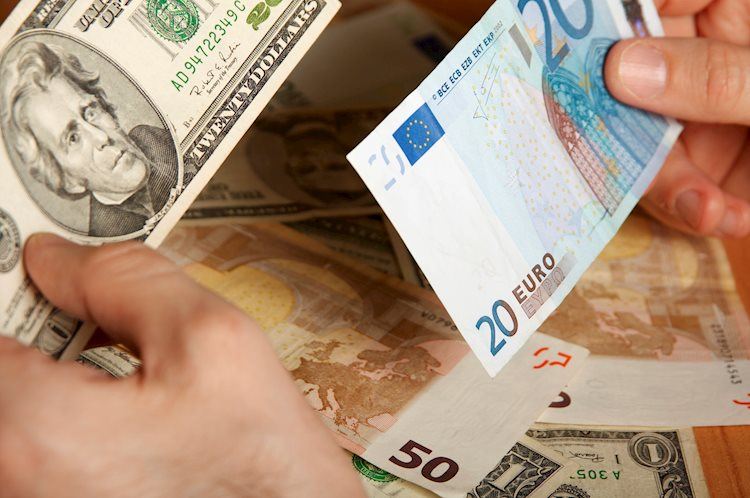- EUR/USD trades in negative territory for the fourth consecutive day around 1.0920 in Monday’s Asian session.
- The risk-off mood supports the US dollar broadly.
- The dovish stance of the ECB weighs on the shared currency.
The EUR/USD pair extends the decline to near 1.0920 during the early Asian session on Monday. The risk aversion amid the escalating geopolitical tensions in the Middle East and conflicts between China and Taiwan exert some selling pressure on the riskier currency like the Euro (EUR).
On Monday, a spokesperson at the US Department of State said they are “seriously concerned by the People’s Liberation Army (PLA) military drills in the Taiwan Strait and around Taiwan.” They further stated that they will monitor PRC activities and coordinate with allies and partners regarding our shared concerns. Any signs of escalating tensions could boost the safe-haven flows, benefiting the Greenback and weighing on the major pair.
Traders expect a 25 basis points (bps) rate cut from the Federal Reserve (Fed) in November after the US Producer Price Index (PPI) on Friday. The CME FedWatch Tool showed the markets are now pricing in nearly an 86.8% chance of a 25 bps Fed rate cut, up from 83.3% before the PPI data.
Across the pond, the Euro faces some pressure as the European Central Bank (ECB) is expected to cut interest rates further in both monetary policy meetings remaining this year. The ECB’s dovish stance increased by a faster-than-expected decline in Eurozone inflationary pressures and ‘fragile’ economic recovery.
Euro FAQs
The Euro is the currency for the 19 European Union countries that belong to the Eurozone. It is the second most heavily traded currency in the world behind the US Dollar. In 2022, it accounted for 31% of all foreign exchange transactions, with an average daily turnover of over $2.2 trillion a day. EUR/USD is the most heavily traded currency pair in the world, accounting for an estimated 30% off all transactions, followed by EUR/JPY (4%), EUR/GBP (3%) and EUR/AUD (2%).
The European Central Bank (ECB) in Frankfurt, Germany, is the reserve bank for the Eurozone. The ECB sets interest rates and manages monetary policy. The ECB’s primary mandate is to maintain price stability, which means either controlling inflation or stimulating growth. Its primary tool is the raising or lowering of interest rates. Relatively high interest rates – or the expectation of higher rates – will usually benefit the Euro and vice versa. The ECB Governing Council makes monetary policy decisions at meetings held eight times a year. Decisions are made by heads of the Eurozone national banks and six permanent members, including the President of the ECB, Christine Lagarde.
Eurozone inflation data, measured by the Harmonized Index of Consumer Prices (HICP), is an important econometric for the Euro. If inflation rises more than expected, especially if above the ECB’s 2% target, it obliges the ECB to raise interest rates to bring it back under control. Relatively high interest rates compared to its counterparts will usually benefit the Euro, as it makes the region more attractive as a place for global investors to park their money.
Data releases gauge the health of the economy and can impact on the Euro. Indicators such as GDP, Manufacturing and Services PMIs, employment, and consumer sentiment surveys can all influence the direction of the single currency. A strong economy is good for the Euro. Not only does it attract more foreign investment but it may encourage the ECB to put up interest rates, which will directly strengthen the Euro. Otherwise, if economic data is weak, the Euro is likely to fall. Economic data for the four largest economies in the euro area (Germany, France, Italy and Spain) are especially significant, as they account for 75% of the Eurozone’s economy.
Another significant data release for the Euro is the Trade Balance. This indicator measures the difference between what a country earns from its exports and what it spends on imports over a given period. If a country produces highly sought after exports then its currency will gain in value purely from the extra demand created from foreign buyers seeking to purchase these goods. Therefore, a positive net Trade Balance strengthens a currency and vice versa for a negative balance.
Read the full article here

